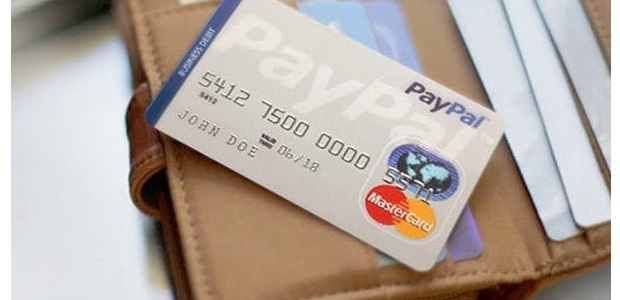
MasterCard and PayPal have engaged in a „constructive dialogue” about a possible strategic alliance, according to a report in the Financial Times.
MasterCard is talking to PayPal to reach a rapprochement after years of friction between the card network and the online payments business. PayPal’s expansion has come at the expense of networks such as MasterCard as many of its users link directly to their bank accounts, circumventing credit and debit cards.
But a week ago PayPal struck a deal with MasterCard’s larger rival Visa. Presenting quarterly results on Thursday, Ajaypal Singh Banga, MasterCard chief executive, said that the second-largest US card group was holding a “constructive dialogue” with PayPal.
“PayPal is actually working to resolve some of those concerns we all have,” he told Wall Street analysts. “This is actually a good thing for PayPal and for the industry because at the end of the day, providing consumers the ability of having seamless, simple ways of paying is good for all of us.”
A deal would ease long-running tension between the companies. PayPal’s deal with Visa was an “iconic truce”, said Michael Moeser, consultant at Javelin Strategy & Research.
He said “it will be important for MasterCard to provide something in addition to what Visa’s offered” as MasterCard “doesn’t have as much to offer PayPal” as Visa did. “It doesn’t have as many consumers.”
Martina Hund-Mejean, MasterCard chief financial officer, added: “Everybody needs to remember that we were the first network, actually, to tell them … that the way that they’re doing the PayPal wallet is not good for the ecosystem.”
“Both parties have to be happy and we’ll announce when we can announce.”
Under PayPal’s arrangement with Visa, the online payments company will stop encouraging its customers to link to bank accounts. In return, the online payments specialist gains a boost to its physical presence, giving it access to Visa’s contactless payment points in US retail stores. Visa will also sweeten the deal by paying PayPal a fee based on the volume of payments that PayPal steers towards Visa.
With 188m active users, PayPal is one of the world’s largest payments networks and is growing fast.
New services from the 20-year-old company include Xoom, the cross-border payments app that PayPal bought last year, and Venmo, a peer-to-peer payments app popular with US millennials. Thanks in part to strong growth from these new services, PayPal’s payments processed rose 28 per cent in the most recent quarter to $86bn.
Historically, PayPal steered customers towards linking their bank accounts because credit card processing fees were much higher than bank processing fees. These fees have come down over time, however, and the deal with Visa includes provisions that lock in these processing fees at advantageous rates.
MasterCard and PayPal already have a co-branded consumer credit card scheme, and the companies disclosed this week that they had extended that deal.
MasterCard generated net income of $983m in the second quarter, 7 per cent more than a year ago, helped by higher consumer spending.
Shares in MasterCard rose 1.5 per cent, giving the company a market capitalisation of $103bn.
Source: ft.com
Banking 4.0 – „how was the experience for you”
„To be honest I think that Sinaia, your conference, is much better then Davos.”
Many more interesting quotes in the video below: